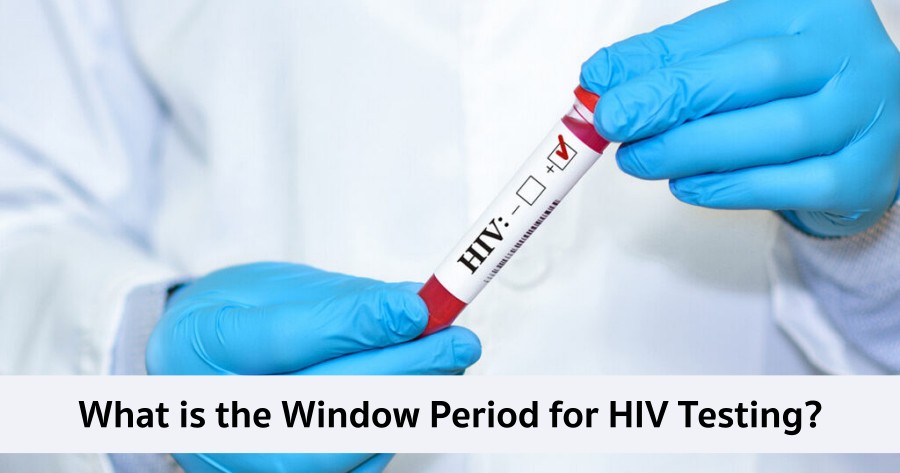If you think you’ve been exposed to the virus that causes AIDS and want to take a test to find out, timing is important. After the Human Immunodeficiency Virus (HIV) enters your body, there’s a certain amount of time that has to pass before a test can detect it. This is called the HIV window period. You need to understand your HIV window in order to get the most accurate HIV test results.
While you wait to have the test, be sure not to have unprotected sex, and don’t share needles. If you do have HIV, you could be very infectious, and you could pass it on to others.
What Is the HIV Window Period ?
The time between when a person gets HIV and when a test can accurately detect it is called the window period. During the window period, a person infected with HIV can still pass the virus on to others, even though the virus isn’t detected.

The window period varies with different types of HIV tests.
In general, antibody tests that use blood from a vein will detect HIV sooner than tests done with blood from a finger prick or with oral fluid. Currently, no HIV tests can detect HIV immediately after exposure to the virus.
When Should I Have an HIV Test?
Testing is highly recommended for anyone who feels like they have been exposed to the virus or is at high risk of being infected. High-risk activities include non-monogamous sex, unprotected sex, and injectable drug use.
If you know the moment you may have come into contact with HIV, get a test three months later after that date. Getting tested three months after exposure gives a 99% accurate test result.2
Testing for HIV is available at a hospital, clinic, pharmacy, community clinic, family planning clinic, youth center, mobile sites, or with a take-home test. To find a testing site near you, use the online locator offered by the U.S. Department of Health and Human Services. Many of the sites offer walk-in testing. Some require an appointment.
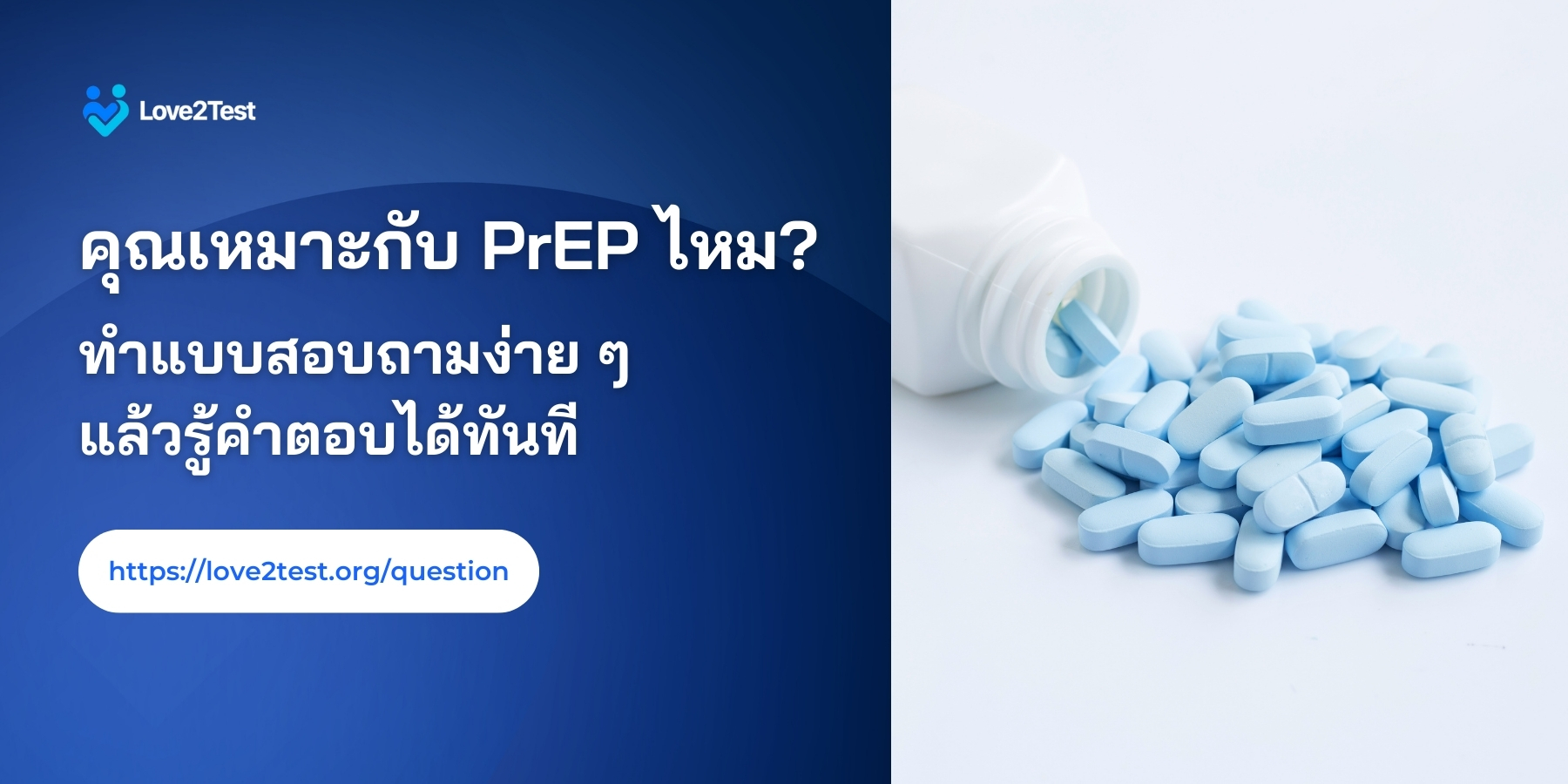
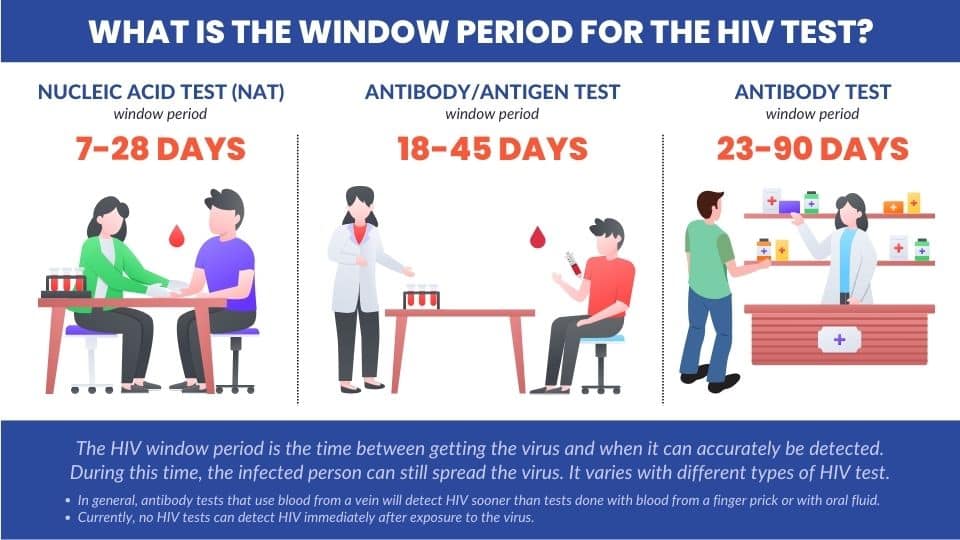
Accuracy for Types of Tests
A Nucleic acid test (NAT)
- looks for the actual virus in the blood and involves drawing blood from a vein. The test can either tell if a person has HIV or tell how much virus is present in the blood (known as an HIV viral load test). While a NAT can detect HIV sooner than other types of tests, this test is very expensive and not routinely used for screening individuals unless they recently had a high-risk exposure or a possible exposure and have early symptoms of HIV infection. (A NAT can tell you if you have HIV as early as 7 to 28 days after infection.)
Antibody/Antigen
- combination tests look for both HIV antibodies and antigens. Antibodies are produced by your immune system when you’re exposed to viruses like HIV. Antigens are foreign substances that cause your immune system to activate. If you have HIV, an antigen called p24 is produced even before antibodies develop. Antigen/antibody tests are recommended for testing done in labs and are now common in the United States. An antigen/antibody test performed by a laboratory on blood from a vein can usually detect HIV infection 18 to 45 days after an exposure. There is also a rapid antigen/antibody test available that is done with a finger prick. Antigen/antibody tests done with blood from a finger prick can take longer to detect HIV (18 to 90 days after an exposure).
Antibody
- screening tests look for antibodies to HIV in your blood or oral fluid. Antibody tests can take 23 to 90 days to detect HIV infection after an exposure. In general, antibody tests that use blood from a vein can detect HIV sooner after infection than tests done with blood from a finger prick or with oral fluid. Most rapid tests and the only currently approved HIV self-test are antibody tests. (This takes anywhere from 2 to 12 weeks. For some, it can take as long as 6 months.)
How long do I need to wait before I test? HIV Window Period
There’s a window period between exposure to HIV and a positive test because it takes time for your body to either build a response to the infection or for the virus to replicate enough for a test to detect it. HIV window periods can vary.
For example, if you have unprotected sex on a Friday night, and get an HIV test Monday morning, the test won’t be able to detect HIV or an immune response to HIV yet. There hasn’t been enough time for a positive result, even if the virus is in your body.
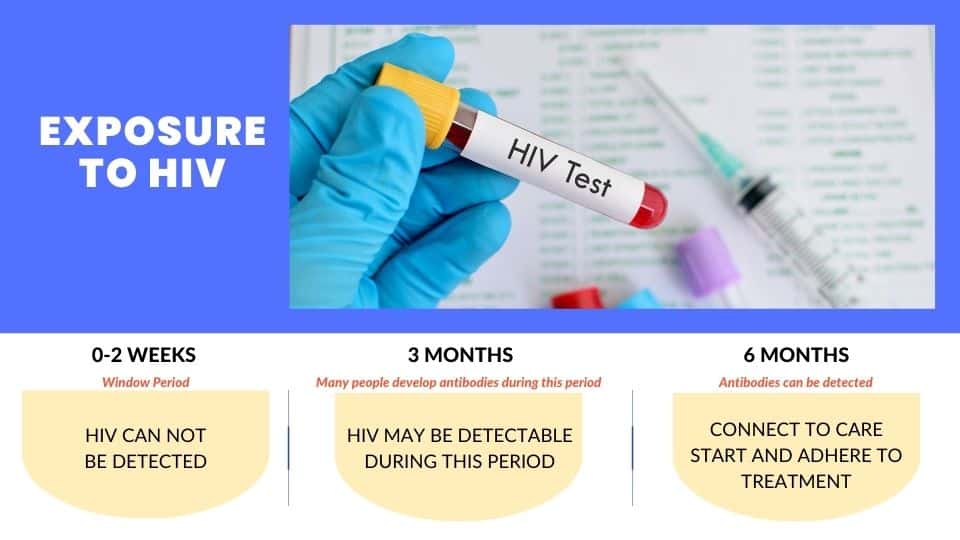
To get the earliest, most accurate result, first consider when you were exposed and whether you’re showing symptoms.
If you know exactly when you may have come into contact with the virus, take a test 3 months after that date. Tests 3 months after exposure should be 99% accurate.
If you are having symptoms of HIV, see your doctor right away. Your doctor may want to use a test that can look for the virus directly in your body.
Precautions During the HIV Window Period
It’s important to remember that a person can still pass HIV on to someone else through sex or sharing needles during the window period. Anyone who suspects that they have been exposed to HIV should take precautions and avoid spreading the virus starting right at exposure.
Post-Exposure Prophylaxis (PEP)
Post-exposure prophylaxis (PEP) is given to someone if they think they have been exposed to HIV within the past 72 hours. It is a short-course treatment that prevents the virus from taking hold in your body. However, it has to be started within 72 hours of exposure, or it would not work. The duration of PEP treatment is 28 days.
You may be prescribed PEP if you:
- Think you may have been exposed to HIV during sex (for example, if you had a condom break)
- Shared needles
- Were sexually assaulted
- Were potentially exposed to HIV through a needle stick injury
While PEP is not 100% effective, it is very effective at preventing an HIV infection if a person begins to take it right after exposure. It may cause minor side effects, or interact with other drugs a person is taking. Be sure to discuss all the potential risks of taking PEP with a doctor. While taking PEP, it’s still important to keep using other HIV prevention methods.
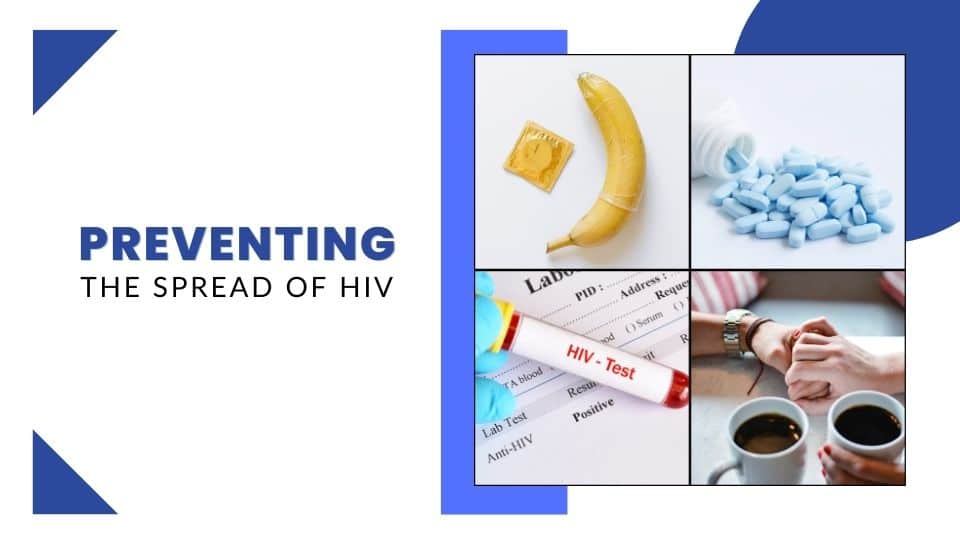
Preventing the Spread of HIV
People who suspect they have been exposed to HIV should still exercise caution to avoid HIV transmission during the window period.
They can do so in several ways:
- Use a condom during sex
- Reduce your number of sexual partners
- Consider using pre-exposure prophylaxis (PrEP), a type of medication that reduces your partners’ chances of getting HIV
- Get tested for other STDs and ask your partners to do the same
- Don’t share drug needles with others
References for HIV Window Period
What Is the HIV Window Period?
- webmd.com/hiv-aids/hiv-window-period
What Is the HIV Window Period?
- verywellhealth.com/hiv-window-period-5096905
